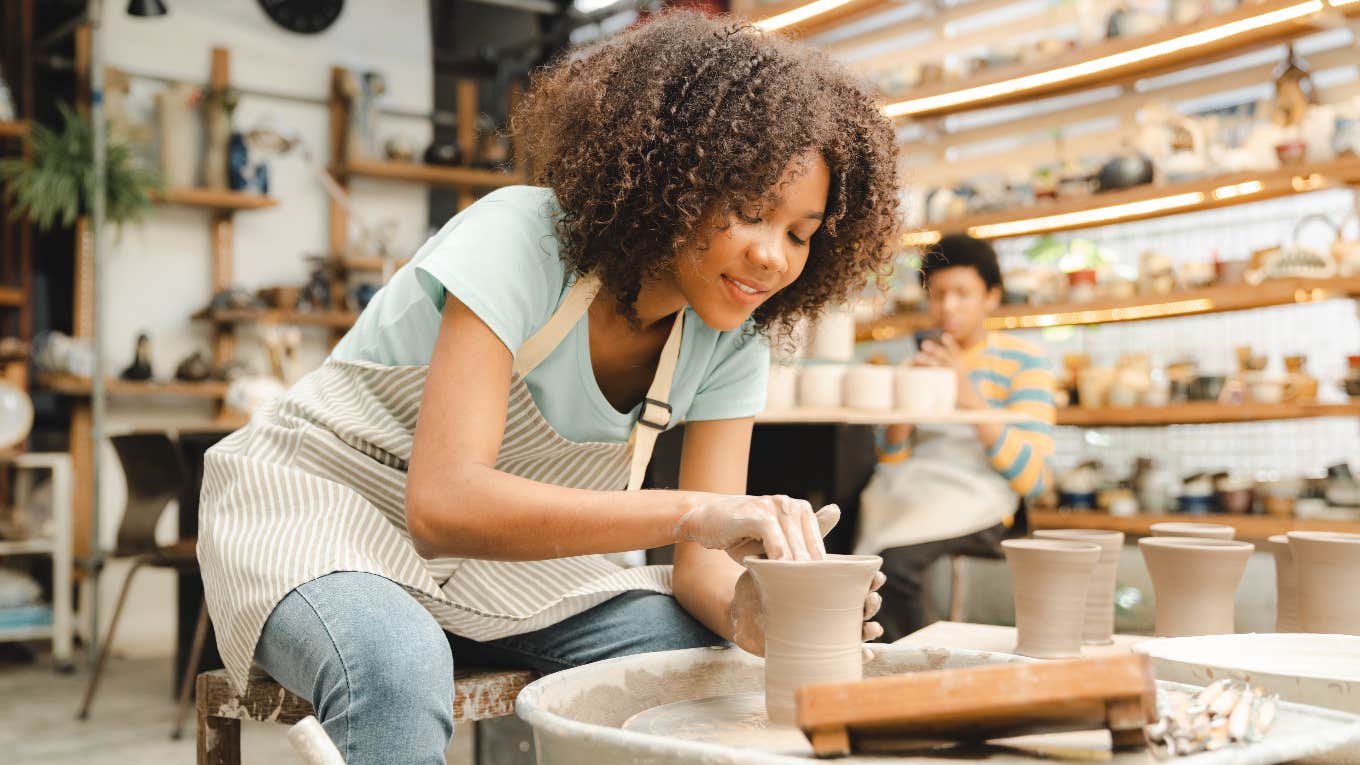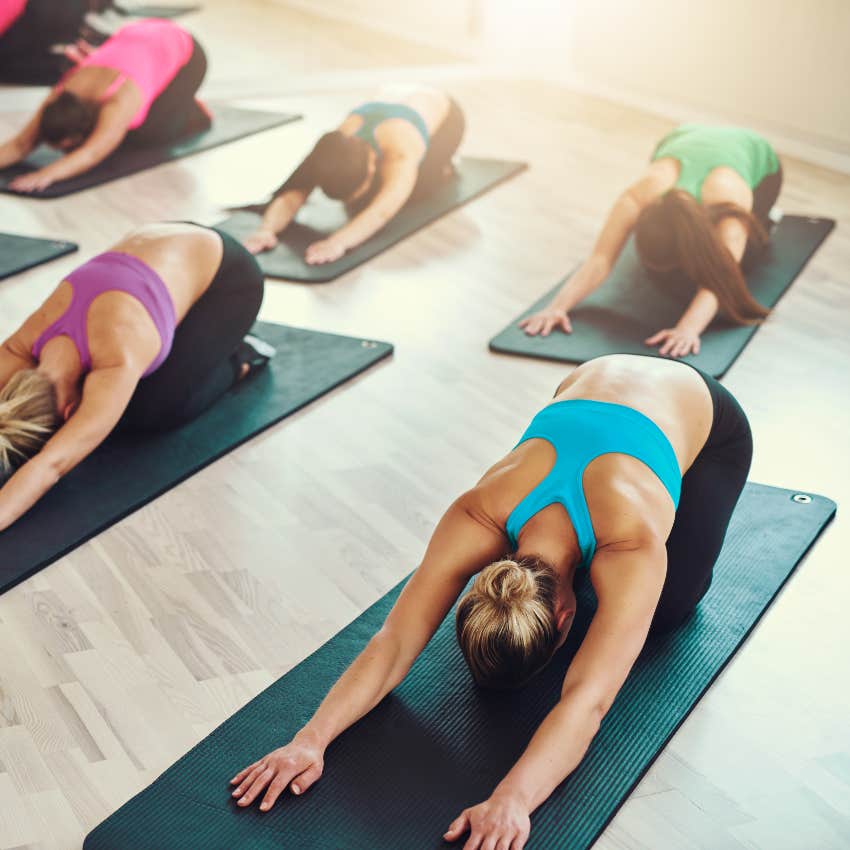Therapist Explains The 2 Reasons Why Hobbies Are The Key To A Happier Life
Hobbies active good chemicals in your brain in ways our jobs, partners and mindless scrolling simply can't.
 Chokniti-Studio / Shutterstock
Chokniti-Studio / Shutterstock There's no two ways about it — times are tough nowadays, and most of us are looking for ways to enhance our lives, raise our moods, and feel a bit more fulfilled. But as big as our problems are, a mental health educator on TikTok offered an incredibly simple solution.
The therapist said hobbies are the key to a happier life.
Now, before you roll your eyes, no, scrolling your phone and playing video games do not count as hobbies — or at least, not the kind of hobbies that therapist and TikToker Israa Nasir is talking about.
There's nothing inherently wrong with either of those things, but when it comes to improving your mood and your life, they just don't offer quite the same bang for your buck as so-called "energizing hobbies."
 Photo: milan2099 / Canva Pro
Photo: milan2099 / Canva Pro
Nasir's take was in response to fellow TikToker Harrison Swales, who said in a video that he noticed a common theme among most of the successful, happy people in his life: They all have energizing hobbies.
Swales noted that "instead of spending all their time on Netflix, going out to brunch, getting drunk on the weekends," these happy, successful people joined a sports league. Or, if they were more creative types, they made videos or wrote books rather than just consuming others' creations on TikTok.
"I don't know if it's directly correlated to your career and success in other areas of your life," he said, "but it certainly seems like it."
According to Nasir, neuroscience says that correlation is very real and not at all an accident.
The therapist laid out 2 key reasons why energizing, productive hobbies really do make us happier.
"This is literally the way to hack your happiness," Nasir said in response to Swales' video, "and there are two reasons why this creator is totally accurate."
1. Energizing hobbies activate 'a sense of flow' in our brains
What the heck does that mean? Nasir explained: "A sense of flow is being so present and immersed in the present moment, being completely where you are."
In other words, you're grounded and in your body, and this has a major impact on our brains — that's why so many therapists recommend activities that meld mind and body, like meditation, yoga, and somatic work, as a treatment for conditions like anxiety and depression.
 Photo: Ground Picture / Shutterstock
Photo: Ground Picture / Shutterstock
This state where "mind and body [are] in the same place, and you're engaging in something that gives you joy or creativity or movement, boosts dopamine in your mind," Nasir explained.
Mindlessly scrolling your phone boosts dopamine, too, but in a totally different way that's ineffective and can ultimately lead to a sort of addiction to dopamine itself.
"When we're able to engage in that long period of time in a state of flow, we have a slow, sustained state of dopamine," Nasir continued, "so that we feel happier for longer, which is the opposite experience when we do things like scrolling mindlessly or watching Netflix or mindlessly drinking."
2. Energizing and engaging hobbies help us disconnect from work with something other than our romantic relationships
For those of you saying, "I don't need a hobby; that's why I have a partner," this bit is for you. "By activating or engaging in energizing hobbies, we decenter work and we decenter our romantic relationships," Nasir said.
That doesn't mean you blow off your boyfriend or wife. But when you have an energizing, edifying pursuit, it relieves a relationship from being the be-all, end-all of one's life.
 Photo: Eric Sanman / Pexels / Canva Pro
Photo: Eric Sanman / Pexels / Canva Pro
"If you think about it," Nasir explained, "your whole life is structured around work … and your romantic relationship. So that makes us very flat and one-dimensional."
Pursuing hobbies, she said, adds "more depth and dimension into our life" — and takes the pressure off both your job and your significant other to give your life meaning.
And for those who say they don't have time for hobbies, Nasir claimed that's malarkey for one specific reason.
"Open your phone app where it measures how much time you're spending on social media and you'll see that you're probably spending three to four hours a day on your phone," she said. "So even if you cut that in half, you can make time for energizing hobbies."
So put that dang phone down and go take a basket-weaving course or something. Your brain will thank you for it!
John Sundholm is a news and entertainment writer who covers pop culture, social justice, and human interest topics.

